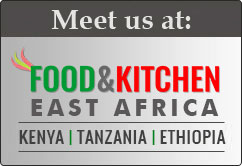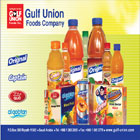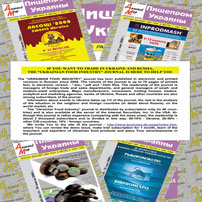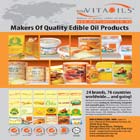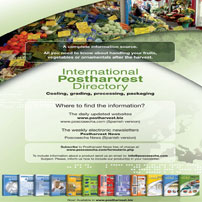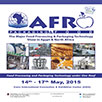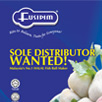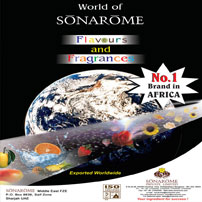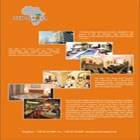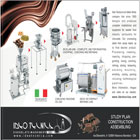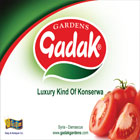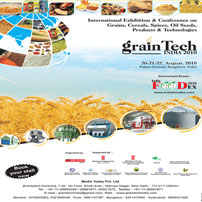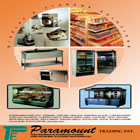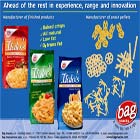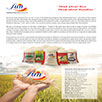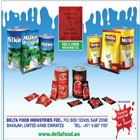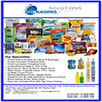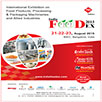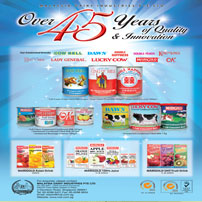

M a r k e t N e w s
Kenya: Antibiotics in Meat - A Serious Cause for Concern
Posted on : Tuesday , 31st January 2017
Fast food chain Burger King has made a commitment to only serve chicken meat from animals that haven't been fed antibiotics in the US and Canada. But the same rules won't apply in Kenya. Eating meat from animals that have been fed antibiotics has been attributed to a rise in resistance to the drugs that treat bacterial germs. The Conversation Africa's health and medicine editor Joy Wanja Muraya asks Sam Kariuki to explain the health risks.
The use of antibiotics by farmers to keep their livestock healthy poses a potential threat to people. How prevalent is this in Kenya?
Antibiotics are used in animal production to prevent disease and promote growth in those bred for sale as meat. More than 50% are used to promote growth.
A recent study conducted in 228 countries estimates that the use of antibiotics in animals will rise by 67% in the next 13 years. It expects use to nearly double in Brazil, Russia, India, China, and South Africa.
The reason for the rise in low and middle income countries is an expected spike in demand for meat as economies of these countries improve. This in turn will encourage rapid growth in intensive farming systems. These are often associated with increased use of antibiotics.
In large scale animal production such as poultry production, antibiotics are added to drinking water to prevent common bacterial and parasitic diseases and as growth promoters.
Antibiotic use in domestic animals in Kenya is not well documented. But reports show they are extensively used among poultry farmers, particularly by intensive smallholder and commercial farmers.
Does this pose a health risk to people? If so, what is it?
If people eat food from animals that have been fed antibiotics normal bacteria that helps maintain ecosystems in the gut, as well as pathogens in humans, can develop resistance to drugs.
When people are infected by the resistant bacteria and require treatment, commonly available drugs may not work because resistance has set in.
Studies in Kenya show that resistance to antibiotics is a major public health concern. With antibiotics, the more you use them the faster you lose them.
There are direct and indirect ways that the use of antibiotics in animals bred for consumption can affect us. The direct link is associated with consuming meat that's been treated with antibiotics which leads to bacteria becoming resistant to the drugs. The indirect effects refer to the spread of this resistant bacteria in either soil or water.
Drug resistance leads to more severe infections, prolonged hospitalisation and in some cases, more deaths if they can't be treated.
What are the solutions? For example, some food suppliers refuse to sell meat from animals that have been fed antibiotics. How do countries like Kenya stack up?
One major success has been the implementation of a national action plan which is in line with World Health Organisation guidelines.
Kenya does have legislation in place to control the use of antibiotics in animals. But it needs to do more to step up enforcement efforts. For example only professionals legally entitled to administer these drugs should handle them. And counterfeit products should be intercepted and prosecutions should be prompt.
In addition there should be awareness campaigns, surveillance should be strengthened and monitoring improved. And legal frameworks, including what dosages are acceptable, must be harmonised between counties and the national government.
What should countries like Kenya be doing to minimise the risk?
County laboratories in Kenya should be better equipped to monitor bacteria that have become resistant to drugs. They often face shortages of laboratory supplies which means they can't carry out prompt or routine surveillance.
On top of this laboratories are poorly funded and clinicians aren't updated on trends about drug resistance. This means that the quality of data produced is outdated.
Collaborative programmes should be encouraged between laboratories at research institutions, universities and private hospitals. And the national and county governments should be urged to contribute to capacity building.
This could include developing education materials and programs for training farmers and veterinarians on prudent drug use and appropriate storage.
Finally, it's critical to learn about the factors that promote resistance as well as the benefits and cost effectiveness of preventative measures.
Source : allafrica.com


